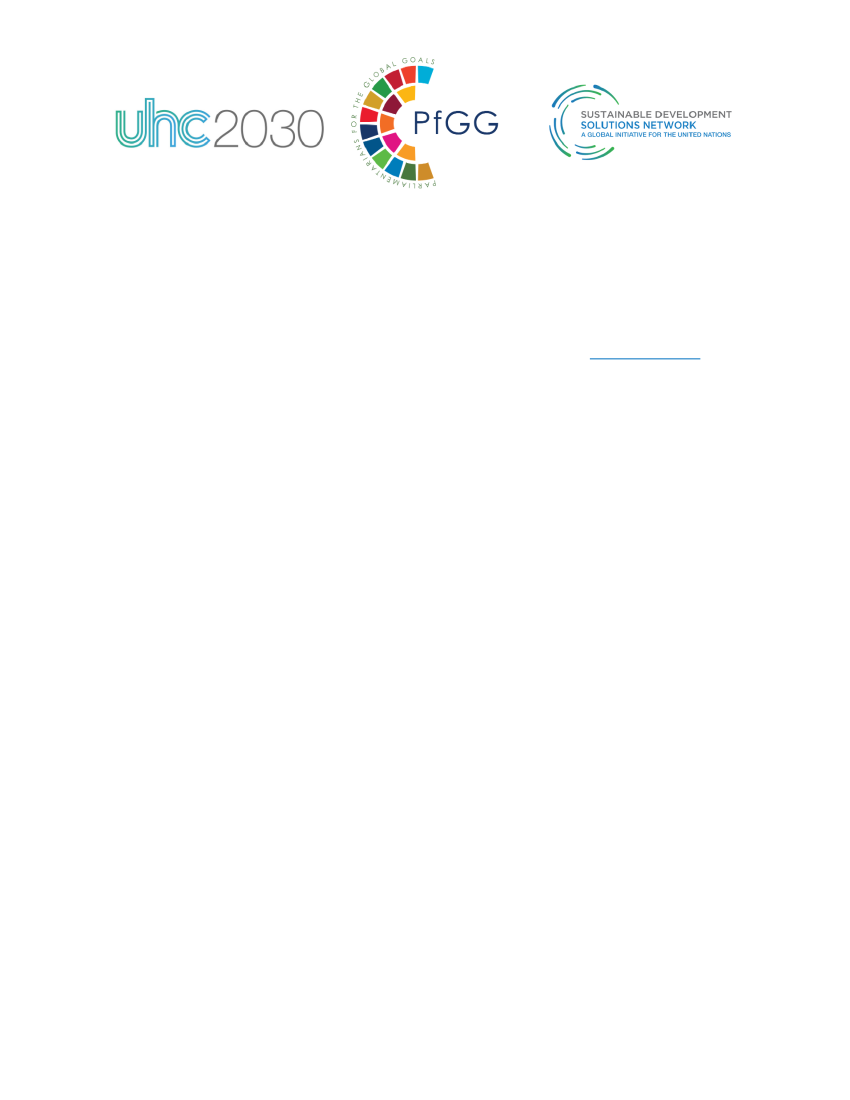
Concept Note & Agenda
Parliamentary Leadership for the 2030 Agenda Webinar Series
Designing National Budgets:
Translating Global Commitments into Realities
April 19, 2021 | 8:00 am to 10:00 am EDT | 2:00 pm to 4:00 pm CEST |
Other Time Zones
Every year, parliamentarians undertake the crucial responsibility of determining the allocation of public
resources through the approval of national budgets. As a decision with wide-ranging and lasting impacts
on the course of action to be taken by governments, budgeting entails a complex challenge that often
demands intricate familiarity and knowledge of specific policy areas. The COVID-19 pandemic, for
instance, has shown that parliaments must be up to the task of designing national budgets that can
provide the necessary resources to strengthen their public health systems, to ensure that their
economic recovery has a firm basis on the SDGs set out in the 2030 Agenda, and to address the specific
needs of groups who are facing conditions of vulnerability.
Budgets are a tool with the potential to deliver the transformative policies that will be needed as we
begin to build back better. However, parliamentarians must also find the means to influence the way in
which the budget is allocated, to prepare the bills and proposals relating to them and even to build new
majorities. In that view, the final webinar of the
Parliamentary Leadership for the 2030 Agenda Series
will be centered on
Designing National Budgets: Translating Global Commitments into Realities.
To
that end, the Sustainable Development Solutions Network (SDSN), Parliamentarians for the Global Goals
(PfGG), and the International Health Partnership for UHC 2030 (UHC2030) will bring together a group of
experts and parliamentarians with the purpose of providing practical guidance on relevant issues that
are within the budgetary purview of parliaments.
How can the framework of the SDGs help parliamentarians in ensuring that budgets address the varying
needs of constituents and foster a sustainable economic recovery? What are the means at the disposal
of parliamentarians to strengthen national health systems through budgets and make them more
inclusive, particularly for women and girls? How can resources be effectively allocated to counteract the
serious setbacks in education brought upon by the COVID-19 pandemic? How can budgets be linked
with accountability, particularly through the design and evaluation of results-based budgets? Can
parliamentarians navigate fiscal restrictions, particularly in developing countries, to provide relief to
those who have endured through considerable economic hardship over the past year?
To address these and other questions of a similar nature, this virtual event itself will be discussion-
oriented and structured to give participants actionable items that can serve to guide their work around
budgets in their own parliaments. A general overview on how to design budgets with gender and
sustainability perspectives as cross-cutting elements will be provided as a framework. Afterwards, the